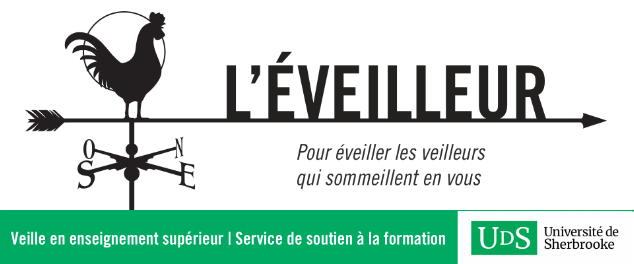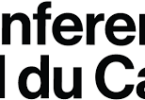Il y a tellement d’articles sur chatGPT qu’il est difficile de trouver les plus intéressants. Ma collègue Marie-Dominique Duval vient de m’en suggérer un qui monte vite dans la liste de mes préférés.
La journaliste Susan D’Agostino du Inside Higher Ed a réuni les recommandations de neuf universitaires de divers horizons, recommandations qui apparaissent essentielles compte tenu du séisme que créé l’arrivée de ce nouvel outil. Pour chacune d’entre elle, je présente un extrait du court texte qui l’accompagne:
Soyez réfléchi. Ajustez-vous rapidement (Be Deliberate. Adjust Quickly):
« …What are the cognitive tasks students need to perform without AI assistance? When should students rely on AI assistance? Where can an AI aid facilitate a better outcome? Are there efficiencies in grading that can be gained?… »
(Nancy Gleason, professeure agrégée en science politique et directrice du Hilary Ballon Center for Teaching and Learning, New York University, Abu Dhabi)
N’abandonnez pas le papier et le crayon (Don’t Abandon Pencil and Paper):
« For some assessments, professors may need to revert to traditional forms of teaching, learning and evaluation, which can be viewed as more human-centric. »
(Michael Mindzak, professeur adjoint, Département des sciences de l’éducation, Brock University)
Interrogez-vous sur la façon dont la rédaction est enseignée (Question How Writing Is Taught):
« In the past, near-term prohibitions on slide rules, calculators, word processors, spellcheck, grammar check, internet search engines and digital texts have fared poorly. They focus on in-course tactics rather than on the shifting contexts of what students need to know and how they need to learn it… »
(Steve Johnson, vice-recteur principal à l’innovation, National University)
Envisagez les prochaines années (Think a Few Years Out):
« Instead of treating ChatGPT as the horizon, look farther out. Our approach to teaching should be guided not by one recent product but by reflection on the lives our students are likely to lead in the 2030s. What will the writing process look like for them? Will they use models as research assistants? As editors? »
(Ted Underwood, professeur de sciences de l’information et d’anglais; doyen associé des affaires académiques à l’École des sciences de l’information, Université de l’Illinois à Urbana-Champaign)
Déléguez certaines responsabilités (Delegate Responsibilities):
« Students could be responsible for using the model to generate language that is accurate, appropriate for the audience and purpose, and reflective of their own voices, while monitoring and reporting issues they encounter. […] Remember that the goal is to share responsibility, not lay blame. Not everyone has the same level of expertise or experience. Work together to ensure the safe, responsible and beneficial use of AI writing tools. »
(Mina Lee, doctorante en informatique, Université Stanford)
Identifiez et révélez les lacunes [du logiciel] (Identify and Reveal Shortcomings):
« …[W]e should assess how well students can identify ChatGPT failings in terms of logic, consistency, accuracy and bias. Can they detect fabrications, misrepresentations, fallacies and perpetuation of harmful stereotypes? If students aren’t ready to critique ChatGPT’s output, then we shouldn’t choose it as a learning aid. »
(Anna Mills, professeure d’anglais, College de Marin)
Rappelez aux personnes étudiantes de réfléchir (Remind Students to Think):
« I anticipate offering more opportunities for students to write in class. In-class writing should not just be additive; hopefully, my classes will in time look and feel different as students learn to approach writing as a practice of learning as well as a demonstration of it. »
(Johann N. Neem, professeur d’histoire, Western Washington University)
Invitez les personnes étudiantes à participer à la discussion (Invite Students Into the Conversation):
« For the past few semesters, I’ve given students assignments to “cheat” on their final papers with text-generating software. In doing so, most students learn—often to their surprise—as much about the limits of these technologies as their seemingly revolutionary potential. Some come away quite critical of AI, believing more firmly in their own voices. »
(Paul Fyfe, professeur agégé d’anglais et directeur du certificat d’études supérieures en humanités numériques, North Carolina State University)
Expérimentez. Ne paniquez pas. (Experiment. Don’t Panic):
« Channel anxiety over ChatGPT into productive experimentation. We built a local team of writing faculty to engage with the tools and to explore pedagogical possibilities. We want to empower our students as writers and thinkers and we know that AI will play a role in their futures. How can we deploy AI writing protocols ethically and strategically within our curricula? Can these tools help underprepared learners? Do some tools work better than others in the classroom? We’re at the early stages of investigating these kinds of questions… »
(Robert Cummings, professeur agrégé de rédaction et de rhétorique,
Stephen Monroe, directeur de département et professeur adjoint de rédaction et de rhétorique, et
Marc Watkins, chargé de cours en composition et rhétorique, tous à l’Université du Mississippi.)
Source: D’Agostino, S. (2023, 12 janvier), ChatGPT Advice Academics Can Use Now, Inside Higher Ed. https://www.insidehighered.com/news/2023/01/12/academic-experts-offer-advice-chatgpt?fbclid=IwAR1vrgx26oSwY-EwSMOOYGmbFB9q_qfQciX_rqBE6Sz9mHhOzoncvQsPqZg







